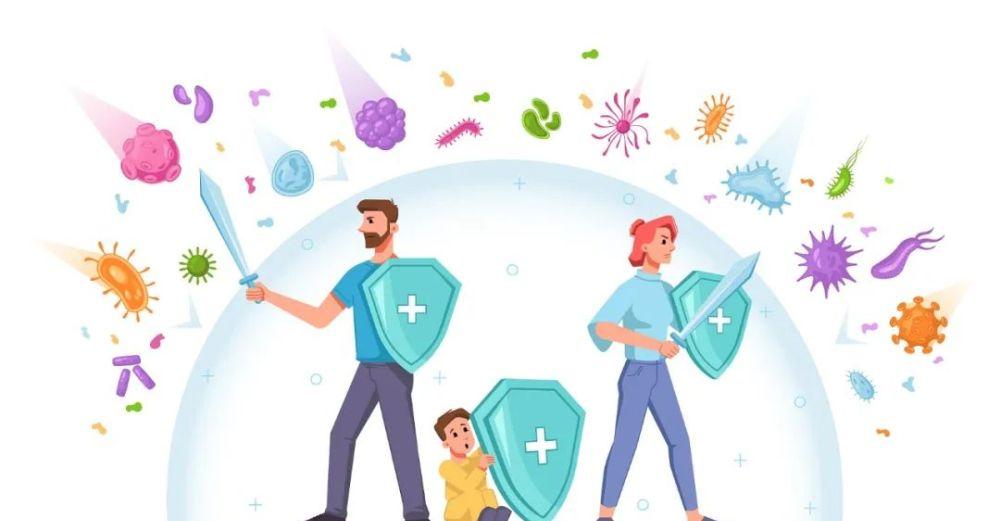In daily life, we are often plagued by large and small inflammation, but in most cases, "carrying a shoulder" or taking some anti-inflammatory drugs will pass, and we do not know that some inflammation in the body will quietly develop into cancer! The literature reports that about one-fifth of the occurrence of cancer in humans is associated with chronic inflammation [1]. What's going on here?
There is growing evidence that many high-risk carcinogenic factors, such as chronic infection, obesity, alcohol, tobacco, radiation, environmental pollutants, and high-calorie diets, are largely carcinogenic by inducing inflammation [2].

Therefore, in order to prevent the occurrence and recurrence of cancer, avoiding inflammation has become a thing we must pay attention to!
From inflammation to tumors!
01
Inflamed substances act continuously
02
A large number of inflammatory cells infiltrate
03
The microenvironment is filled with a large number of inflammatory cytokines and active mediators
04
DNA damage and genomic instability
05
Oncoleptic genes are inactivated and oncogene overexpression
06
Cells become cancerous
Inflammation-induced cellular mutations are not as widely recognized as physical, chemical, and viral gene mutations, and are controversial because not all inflammation can induce tumors, such as psoriasis and arthritis [3]. On the other hand, some tumors (such as breast cancer) may not have a corresponding inflammatory response.
These inflammations are closely related to cancer!
Foreign epidemiological data on inflammation-related cancers show that chronic inflammation can increase the risk of cancer (see table below) [4].
Hepatitis liver cancer
Studies have shown that 80%-85% of liver cancer patients in mainland China are caused by hepatitis B and 7%-8% by hepatitis C. Whether it is the active phase of hepatitis or the quiescent phase, liver cells may have different degrees of inflammation, and the liver will be constantly damaged. Repeated or persistent inflammation, the injured liver forms many scars, that is, liver fibrosis.
When there is more and more fibrous tissue, the number of normal liver cells is becoming less and less, liver cells are wrapped in fibrous tissue, blood vessels, bile ducts will also be compressed, over time, will form cirrhosis, then not far from liver cancer.
Atrophic gastritis stomach cancer
For chronic atrophic gastritis, and severe atrophic gastritis, its cancerous changes are relatively high, up to 3%-5%. For such patients, close endoscopic monitoring should be performed.
It may take 3-5 years or longer to go from chronic atrophic gastritis to cancer, but if the endoscopic monitoring is carried out closely and the lesion is found, endoscopic treatment can also be carried out in time to avoid the occurrence of cancer.
Chronic ulcerative colitis colon cancer
Inflammatory bowel disease is generally considered to be a symptom of precancerous lesions, and the current consensus is that ulcerative colitis is a precancerous lesion of rectum and colon cancer. It can be seen that ulcerative colitis does not rule out the possibility of cancer.
Chronic pancreatitis pancreatic cancer
Chronic pancreatitis can develop into pancreatic cancer, and its cancerous lesions are mainly related to the duration of pancreatitis, regardless of severity and scope. The risk of developing pancreatic cancer from chronic pancreatitis increases by 2% every 10 years, and the risk increases in elderly patients compared with younger patients.
The high incidence of pancreatic cancer is mostly 10 to 20 years after the onset of chronic pancreatitis. Smoking can increase the risk of onset by 1-fold in patients with hereditary pancreatitis, and the onset of the disease is 20 years earlier.
bibliography
1、BalkwillF,MantovaniA.In f lammation and cancer:back to vir-chow?[J].Lancet,2001,357(9255):539-545.
2、Lin WW,Karin M. A cytokine-mediated link between innate immunity,inflammation,and cancer[J]. J Clin Invest,2007,117 (5) : 1175-1183.
3、Nickoloff BJ,Ben-Neriah Y,Pikarsky E. Inflammation and canc- er: is the link as simple as we think? [J]. J Invest Dermatol,2005,124(6) : 10-14.
4、Scheter A J,Hegard N H,Haris C C.Inflammation and cancer:interweaving microRNA,fre radical,cytokine and p53
pathways [J]. Carcinogenesis,2010,31(1):37-49.